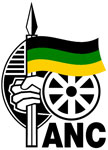The African National Congress (ANC) and media editors said earlier this week that they had reached some common ground in their standoff over the controversial Protection of State Information Bill.
This followed a "frank" closed-door meeting between the ruling party and the South African National Editors' Forum (Sanef), convened to iron out contentious issues mooted in the bill which civil society groups have described as heavy-handed.
While neither party would provide the details of what was discussed, both said they were happy with the engagement.
The head of communications for the ANC parliamentary caucus, Moloto Mothapo, said it initiated the meeting in response to criticism of the bill in the media.
"We realised that there had been insufficient engagement among parties with mutual interest. The end of engagement is the beginning of war. We want to avoid war at all costs and we can only overcome that through dialogue," he said.
The meeting came a week after Zwelinzima Vavi, general secretary of the Congress of South African Trade Unions, which is highly critical of the bill, said the ANC had indicated a willingness to talk, the first sign of a softening stance.
Changes welcomed, but still 'deep flaws'
Mothapo said the ANC was committed to engaging with those opposed to the bill. "We appreciate where they (the media) are coming from and that they know where we are coming from," he said.
Sanef media freedom chairman Nic Dawes said while the changes that had been made were a step forward, the "remaining flaws are so deep we won't be able to accept it without further changes."
Among the aspects of greatest concern were the extensive powers given to intelligence agencies and the lack of a public defence clause.
Dawes, editor of the Mail & Guardian, said Sanef's submission to the National Council of Provinces would centre on these concerns.
DA launches 'e-mobilisation' campaign
"At the heart of our submission is the freedom of information dispensation and who gets to classify information. Second is the right of journalists, activists and workers to reveal classified information of wrongdoing by the state such as mismanagement and fraud."
However, Dawes said, Sanef was happy opportunities would still exist to address its concerns though there "was still some distance" between the two parties.
Meanwhile, the Democratic Alliance (DA) launched an internet "e-mobilisation" campaign against the "secrecy bill" in Cape Town yesterday. The campaign could flood the Presidency and presidential hotline with millions of communications. It is part of opposition efforts to put pressure on the government and Jacob Zuma to make changes to the bill when it goes to the National Council of Provinces early next year, the final stage in its parliamentary passage.
DA leader Helen Zille said the initiative would involve a generic letter on the party's website and a petition that could be signed and sent to the president.
"Today we will be signing a generic letter to the president that all South Africans can download from the DA's website, sign, and e-mail to the president's office.
"We will also be signing a petition that we will send to the president if the bill is passed through without the necessary amendments, asking him not to sign the bill into law. South Africans can also help by registering their concerns with the presidential hotline on 17737," she said.
Source: Business Day via I-Net Bridge












































